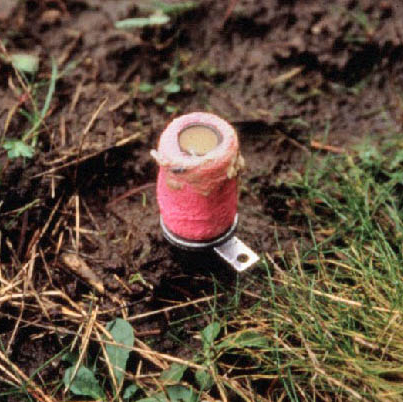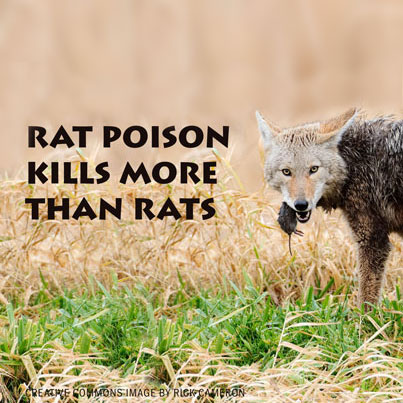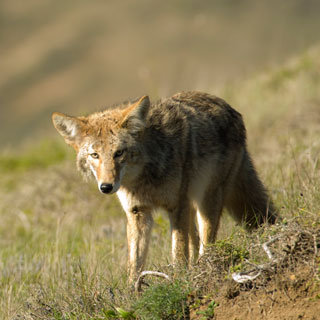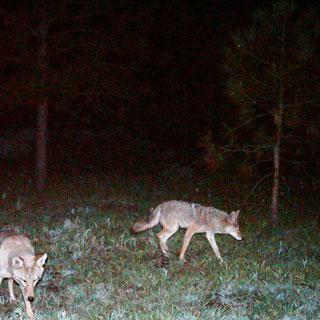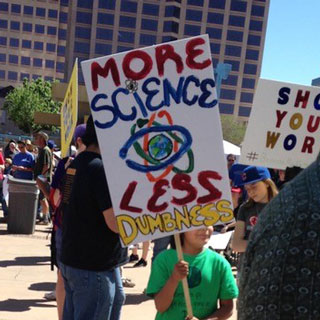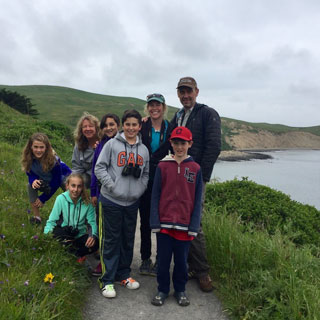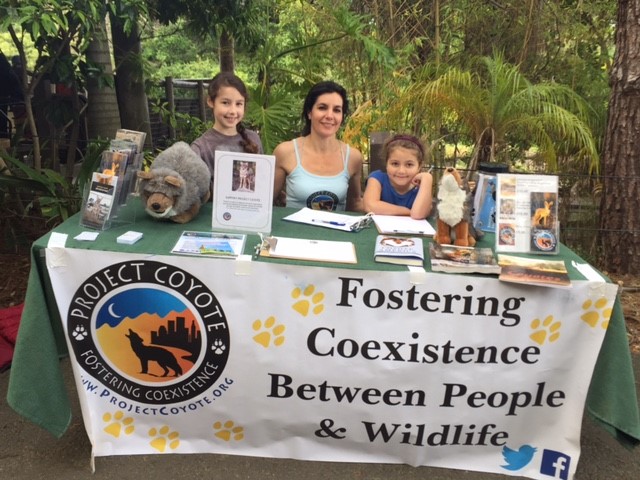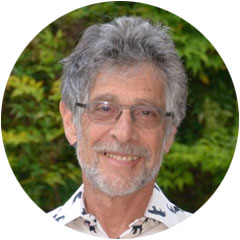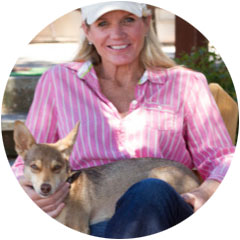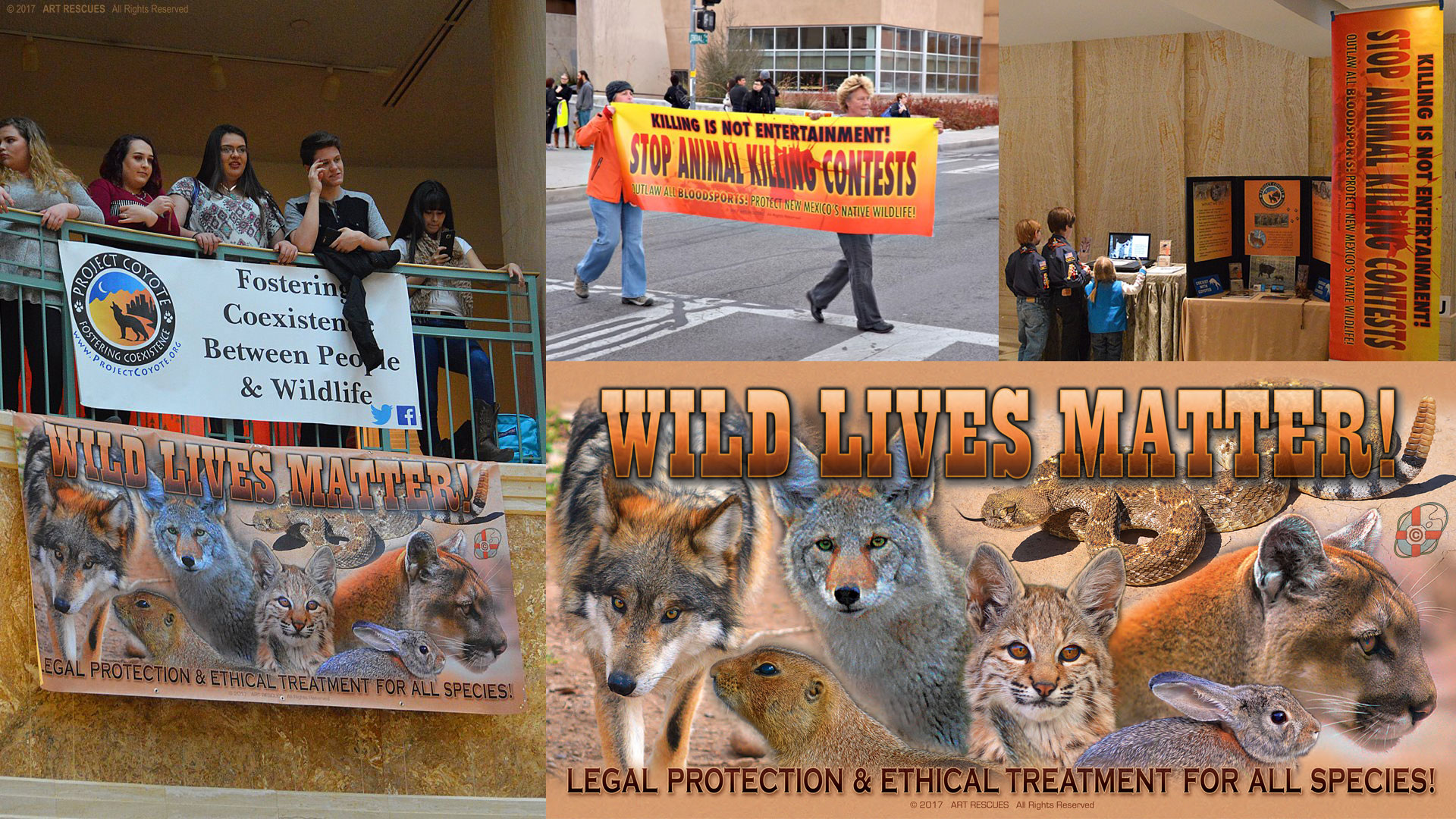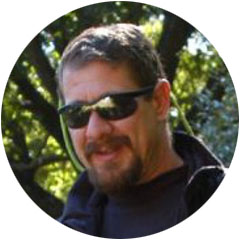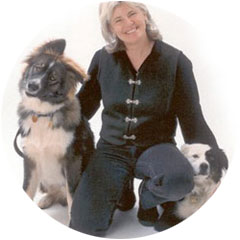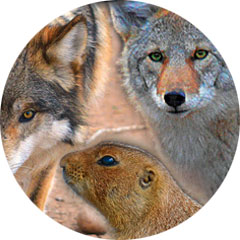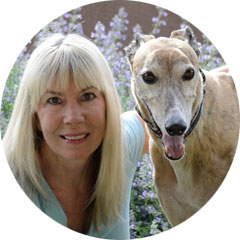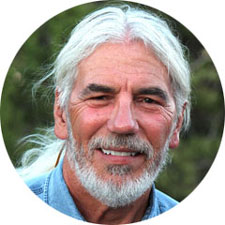MAY 2017
As we celebrated mothers (two-legged and four-legged alike) this past weekend, we were grieved to learn of the recent poaching of a rare white female alpha wolf in Yellowstone National Park in Wyoming. The 12-year old wolf was left for dead and finally euthanized by park officials. As reported in the New York Times, she was the alpha female of the park’s Canyon Wolf Pack. She had been the mate of the alpha male for nine years and gave birth to 20 pups, 14 of whom lived to adulthood; she was key to perpetuating her pack. This sad event corroborates the seminal study recently published by Project Coyote Science Advisory Board Member Dr. Adrian Treves on the detrimental impact of poaching on gray wolf populations (see below).
This tragedy in Yellowstone reaffirms the need to raise public awareness about the ecological value of apex predators and the value – and loss – that one individual can have to an entire ecosystem. This issue of Coyote Chronicles highlights Project Coyote’s commitment to educating the public and advocating on behalf of wildlife with evidence-based models of coexistence—on Earth Day and every day. I hope you will take a moment to read about how Project Coyote science advisors are informing wildlife debates with independent research, and how Project Coyote representatives and volunteers are reaching out to communities and young people to build consensus in favor of compassionate conservation.
REFORMING PREDATOR MANAGEMENT
Idaho: M-44 “Cyanide Bombs” Removed & Federal Legislation Introduced to Ban Predator Poisons!
The U.S. Department of Agriculture’s Wildlife Services (WS) program—which kills tens of thousands of native carnivores across the country annually—announced on April 10 that it has abandoned the use of M-44 sodium cyanide ejectors (also known as “coyote getters”) in Idaho in response to a petition filed by 19 conservation and wildlife organizations, including Project Coyote. In a letter transmitted to conservation groups, WS announced that it has ceased the use of M-44 cyanide bombs on all private, state, and federal lands in Idaho, and has removed all M-44s that were deployed in the state. The petition to stop using M-44s was filed in response to an incident near Pocatello, Idaho, where a 14-year-old boy was sprayed with cyanide and his dog was killed after tripping an M-44 device. Read more here and here.
In response to this tragedy, U.S. Representative Peter DeFazio (D-OR) introduced H.R.1817 – Chemical Poisons Reduction Act of 2017, which would prohibit the use of the poisons sodium fluoroacetate (known as “Compound 1080”) and sodium cyanide for predator control. The bill has been referred to the Referred to the Subcommittee on Crime, Terrorism, Homeland Security, and Investigations. Read more here.
REFORMING PREDATOR MANAGEMENT
California: Deadly Poisons Targeted
A coyote was recently found dead in San Francisco with four different rat poisons in its body. Its death, caused by massive internal bleeding, reminds us how urgently we must fight to ban deadly poisons. Project Coyote is partnering with Raptors Are the Solution (RATS) and Poison Free Malibu to press for the passage of AB 1687 in California to expand prohibitions on certain dangerous pesticides statewide that pose a danger to multiple species, including bobcats, raptors, mountain lions and imperiled San Joaquin kit foxes and Pacific fishers. The bill, sponsored by Assemblymember Richard Bloom, was scheduled for a vote in early April but has been delayed partially as a result of pushback from the pesticide industry. Project Coyote representatives and our partners met with Assemblymember Bill Quirk, Chair of the Environmental Safety and Toxic Materials Committee (the committee to which the bill has been assigned). We will keep our California supporters updated on events when the bill is reconsidered. Read more here.
REFORMING PREDATOR MANAGEMENT
Georgia: State-sponsored Killing Contests Challenged
In a letter sent to the Georgia Department of Natural Resources (DNR) this month, Project Coyote Science Advisory Board members condemned the DNR-sanctioned “Georgia Coyote Challenge,” which began March 1. As the scientists write, “This purported management tool is nothing more than a wildlife killing contest, tempting participants to kill coyotes for a chance to win a lifetime hunting license.” The letter also points out DNR’s contradictory position on organized coyote killing programs, citing the Georgia Deer Management Plan, which states “coyote bounties [are] viewed as an ineffective tool …. [Wildlife Resources Division] and [the State] General Assembly oppose coyote bounty programs.” The GCC started March 1, and immediately came under intense public criticism. See a local television newsclip highlighting Project Coyote’s science advisors’ response to the program here.
REFORMING PREDATOR MANAGEMENT
California: Trapping & Night Hunting Targeted
In December 2015 Project Coyote joined the Center for Biological Diversity in petitioning the California Fish and Game Commission to ban lethal trapping and night hunting in the state’s wolf recovery zone (petition here) and to require compliance with its own mandated fee structure for trappers (petition here). We have collected signatures, filled hearings with testifying supporters, and provided testimony laying out the science favoring the ban and the law mandating that trappers pay the sufficient user fees to the state. Project Coyote representatives, volunteers and friends, along with our partners, testified before the California Fish and Game Commission on February 8 and again on April 26 to argue for reconsideration of the two petitions, which (as noted above) we had originally presented to the Commission in 2015. Watch Project Coyote Southern California Representative Randi Feilich delivering testimony and close to 50,000 petition signatures to the Commission in April in Van Nuys in support of our joint petition with CBD to restrict trapping and night-hunting in the wolf recovery zone.
Neither the Commission nor the Department of Fish and Wildlife (DFW) has addressed these petitions, claiming their failure to respond is largely due to understaffing and a lack of resources. However, as pointed out by Project Coyote in testimony before the Commission, the Commission and DFW have chosen to prioritize other petitions filed by consumptive wildlife use groups that focus on liberalizing use of GPS collars for hound hunting, while choosing to ignore our trapping petition—which has a legal mandate. Stay tuned for updates on further actions on these petitions.
SCIENCE AND STEWARDSHIP
Project Coyote Science Advisory Board Members Publish New Data Supporting a Paradigm Shift from Lethal Predator Control to Coexistence
An interdisciplinary group of wildlife biologists and social scientists, including several Project Coyote Science Advisory Board (PCSAB) Members, has published a series of papers presenting new evidence of the greater efficacy and social acceptability of nonlethal deterrents to livestock depredation by large carnivores, as well as the lack of justification and possible harm to populations and ecosystems resulting from lethal control of these predators. A Special Feature on Predator Control in the February 2017 issue of the Journal of Mammalogy compiles evidence of these effects on wolves in Idaho, Wisconsin, and Michigan, and dingoes in Australia, and also provides new evidence of the growing intolerance in the attitudes of the American public for lethal control of predators.
The Special Feature is organized by PCSAB member Dr. Bradley Bergstrom of Valdosta State University, who in his introduction reviews the science and history of predator control. Dr. Adrian Treves of the University of Wisconsin and colleagues show that mortality of gray wolves in Wisconsin due to unreported illegal take, or poaching, has been underestimated and could drive total mortality rates higher than managers assume. And Dr. John Vucetich of Michigan Technological University and colleagues show that a public hunt of gray wolves in Michigan in 2013 was not justified on the basis of meeting the stated purposes and goals of the hunt (to reduce threats to livestock and humans) nor on the basis of the North American Model of Wildlife Conservation, which is widely embraced by wildlife managers. Read more here and here.
Project Coyote Science Advisory Board Member George Wuerthner Wins Grassroots Activist of the Year Award
Project Coyote is honored to congratulate our own Science Advisory Board Member George Wuerthner for being named the Fund for Wild Nature’s Grassroots Activist of 2017. The award announcement highlights George’s work to uncover the damaging effects of human activities and interventions on wild nature, and his successful wildlands restoration efforts. The Fund for Wild Nature describes its grantmaking strategy as an investment in “cutting-edge grassroots organizations and innovative conservation efforts that meet emerging needs for protecting biodiversity and wilderness.” We are thrilled to see George’s essential research and successful wildlands conservation acknowledged in this way. Recently George was interviewed by 60 Minutes for a show about wildfires at the wildlands urban interface; that show will air on May 21st (check local PBS listings for air time). In 2015, Project Coyote’s founder and executive director Camilla Fox was honored with the Fund for Wild Nature’s Grassroots Activist of the Year Award.
Dave Parsons Marches for Science in New Mexico
Project Coyote Science Advisory Member Dave Parsons was featured in a guest column in the Albuquerque Journal on the reasons he marched for science on Earth Day—read more here. As part of the nation’s first Earth Day March for Science, Dave also participated in and photographed events at New Mexico’s science march. Learn more about Project Coyote’s Science and Stewardship program here.
Marc Bekoff Speaks Up on Behalf of Coyotes & Coexistence
Project Coyote Science Advisory Member Marc Bekoff joined Richard Wiese, President Emeritus of the Explorers Club, and Jim Fowler of Mutual of Omaha’s Wild Kingdom, in writing a widely publicized Op Ed about coexisting with coyotes and countering Nature Deficit Disorder by encouraging young people to reconnect with the wild. Read “Let the Coyotes Be” here. And read about Dr. Bekoff’s new book The Animal’s Agenda here.
KEEPING IT WILD
Connecting Youth with the Wild
Students from Fairfax Manor Elementary School’s Green Team and teacher Laura Honda joined Project Coyote’s Camilla Fox and Point Reyes Safaris leader and award-winning wildlife photographer Daniel Dietrich for a special outing to Point Reyes National Seashore on Earth Day. In recognition of their letters and testimonies before the California Fish and Game Commission in support of successful efforts to ban bobcat trapping, restrict predator killing contests, and afford protections for wolves returning to California, Daniel and Camilla wanted to give the Green Team an opportunity to view the very animals they had fought so hard to protect. The day included coyote and owl sightings and a lot of wonder. See photos from the outing here.
Celebrating Earth Day
At Earth Day events across the country Project Coyote volunteers were out in full force spreading our message of compassionate coexistence and the importance of apex predators to healthy ecosystems. Check out these photos of Project Coyote in action here.
COYOTE FRIENDLY COMMUNITIES
As we enter coyote pup season, Project Coyote state representatives and volunteers are reaching out to towns and cities across North America with helpful advice on how to keep families, pets and wildlife safe. Learn more about our presentations and workshops across the country here.
Partnering with Saskatoon—the largest city in the Canadian province of Saskatchewan— Project Coyote has helped the community with signage and educational outreach. Listen to Jeff Boone provide common sense instructions for peaceful coexistence with coyotes in this Global News video.
Closer to home in our headquarters of Marin County our signage alerts dog walkers of coyotes denning nearby with young and precautionary measures to keep dogs and coyote pups safe.
MORE ABOUT OUR DEDICATED TEAM
Fauna Tomlinson Honored with Guardian of the Pack Award
We are proud and pleased to honor Fauna Tomlinson with a Guardian of the Pack Award for outstanding contribution and service to Project Coyote. We spoke of the ways Fauna supports Project Coyote and the work she does on behalf of wildlife in the United States and internationally. Read our interview with Fauna here.
Don Lipmanson
Keli Hendricks
John Maguranis
Chris Schadler
Joe Newman
Our stalwart New Mexico team member Joe Newman, a master of graphic design and photography, has spent countless hours creating Project Coyote artwork of all types and sizes. Joe has employed his talent and creativity in producing everything from lettering for our written materials to towering banners for our events. Joe’s work has gone a long way towards bringing Project Coyote’s message to life. Take a look at some of Joe’s creations directly above and his photography here.
Judy Paulsen
Dan Flores
Dan Flores—American West historian, Project Coyote Ambassador, and New York Times bestselling author of Coyote America: A Natural and Supernatural History—has been selected as the 2016 winner of the Sigurd F. Olson Nature Writing Award for adult literature. Since 1991, Northland College in Wisconsin has given the Olson award on Earth Day “to highlight the best environmental writing at a time when people are reflecting and thinking about their place in the natural world.” We couldn’t agree more with Northland’s selection. Dan’s other recently published book American Serengeti: The Last Big Animals of the Great Plains (University Press of Kansas), was just named the winner of the 2017 Stubbendieck Great Plains Distinguished Book Prize. Congratulations, Dan!
In addition, on April 19th, Project Coyote—in partnership with Point Reyes National Seashore Association and Point Reyes Books—hosted an evening with Dan at the Red Barn Gallery in Point Reyes Station. A standing-room only crowd listened to Dan read passages from Coyote America, discuss the history of coyotes in America, and relay stories of his own experiences with these remarkable animals.
You can read Project Coyote’s interview with Dan here, and National Geographic’s Interview with Dan about Coyote America here.
Project Coyote is offering a limited first edition, signed copy of Coyote America for donations of $100 or more—order your copy here (Membership Bonuses section).
Join our E-TEAM
Get periodic e-news, action alerts, and join our growing network of educators, scientists, predator friendly ranchers and citizen leaders who are helping people and wildlife coexist in our communities.
Join a growing community of educated and empowered citizens by expressing your commitment to compassionate conservation with a financial investment.
You can DONATE, become a SPONSOR or leave a LEGACY GIFT.


